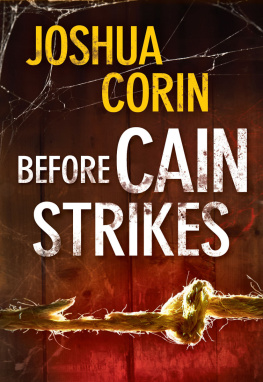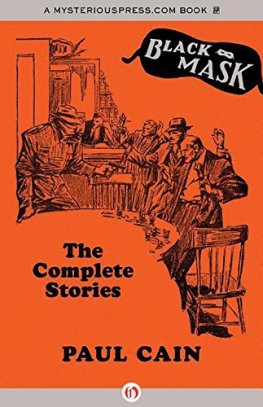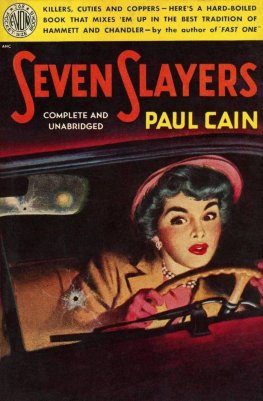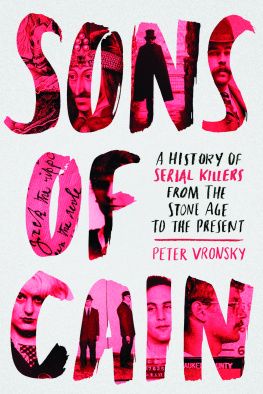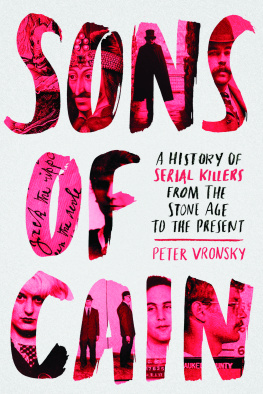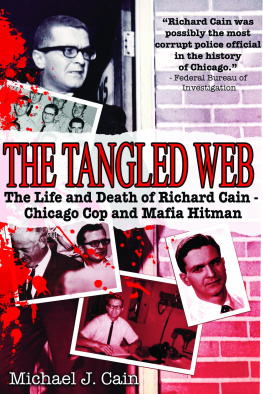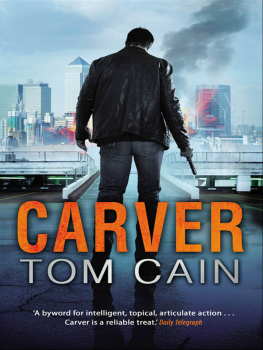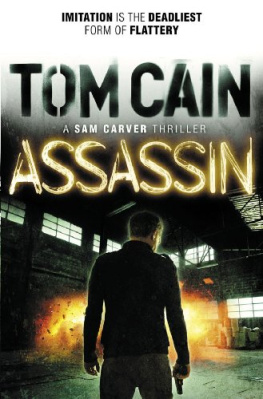Prologue
We are a nation of outlaws. Its in our history.
Its in our blood.
O ur first colony in Massachusetts was settled as a sanctuary and refuge for those souls brave enough to defy the Anglican Church. These men and women were the first American heroes and they were rebels one and all. That their ancestors should rise up one hundred and fifty years later and throw off the shackles of British tyranny was inevitable. What was the Civil War, really, but a re-creation of the Revolution from a Southern point of view?
We are not a people who respond well to authority.
Is it any wonder, then, where our sympathies lie? Of course the chroniclers of the Wild West preferred Billy the Kid to Pat Garrett. Of course we all know the legend of Butch Cassidy and the Sundance Kid, but how many of us can mentionor even care aboutthe Pinkerton detectives who were on their trail?
Look at our literature. Look at our theater. Time and again, our fascination sides with the felon, the neer-do-well, the desperado.
By sales alone, who is the most popular American comic book character of the twentieth century? Not that over-grown Boy Scout Superman. Not guilt-ridden Spider-Man. According to industry experts, the most popular comic book character of the twentieth century was the shadow-dwelling vigilante Batman. Of course he was.
Its no surprise that we as a nation have become so fascinated by serial killers. As an ever-growing government has euthanized our convictions and emasculated our passions, we recognize in the serial killer a figure of unabashed liberty, and we are attracted.
Let there be no misunderstanding: murder is reprehensible. The thesis of this text will be an analysis of the recent series of murders committed by Henry Galileo Booth in the context of the outlaw mystique. If you are looking for a championing of men such as him, look elsewhere. There is a vital line between attraction and acceptance.
John Dillinger is much more appealing from afar.
Nietzsche in Beyond Good and Evil wrote that when we gaze into the abyss, the abyss gazes back into us. Hold my hand. Take a breath. The abyss we are about to study in its dark geography is at the very core of America and its honesty cleanses with acid.
Are you ready?
Lets begin.
T imothys first pet was a yellow-haired hamster named Dwight. Dwight came with his own glass container and his own wheel and Timothys parents placed it all on a folding table by a window in Timothys bedroom. Timothy was six years old. Dwight was his birthday gift. The next morning, after he and his mother fed Dwight his breakfast (a lettuce leaf), Timothys mother left her son alone in his room with the creature. Timothy sat cross-legged in the center of his mint-green carpet and held Dwight in his hands and ran his fingers along the rodents spine. The vertebrae reminded Timothy of a pipe cleaner. In nursery school, he built a man and a woman out of pipe cleaners. Timothy bent the hamsters spine this way and that way. Through it all, the animal kicked and kicked, so Timothy held him firm with his left hand and ran the fingertips of his right hand along the thin yellow fur and the ridges of Dwights spine, which, again like a pipe cleaner, was so bendable, but just how bendable was it? Timothy grabbed Dwights hindquarters and twisted. Dwights feet kicked and kicked and kicked and kicked and then stopped kicking altogether and Timothy had his answer.
He opened the window in his bedroom and tossed the corpse out and told his parents in between sobs that Dwight had fallen. They consoled him. His father, a travel agent, helped Dwight bury the animal and took his son out for ice cream. Three weeks later, his mother, a veterinarian, got him a tabby. Timothy named the cat Boots. Boots, to her credit, lasted many months longer than Dwight, until Timothy was able to finally reach his fathers tools, which were kept on a wall in the garage. Dwight chose the claw hammer, which proved doubly useful because he was able to later use it as a shovel to bury Boots in their neighbors yard.
So his parents bought him another cat.
Then another.
Then a puppy.
Then a parakeet.
Then a pair of goldfish in a sealed aquarium.
The goldfish he poisoned with Drano. By then he was nine years old. The goldfish were his last pets for a long, long time.
Until today.
And today was a very special day not only because he had a new pet on a new birthday but because he had acquired her all by himself. No one else knew about her, which was fine by him. Pets were personal. And she was his.
Her name was Lynette. She had yellow hairmuch like Dwight, actuallyand a pair of eyes so blue they reminded Timothy of wrist veins. His were prominent. He used to wonder if he had the same number of skin layers as everyone else, but a simple dissection with a straight razor (from his dads shaving kit) and a microscope (from his old grammar school) solved that mystery.
Lynettes limbs were meaty. Her whole body was, really. Whoever had owned her before him had fed her well. Catching her had been easy but transporting her had been a challenge. Timothy ended up stuffing her in a heavy-duty duffel bag he bought at an army surplus store and dragging her. No one asked questions. Why would they? By the time he brought her down the wooden steps of the unfinished basement and deposited her in the corner, his heart was pounding a cocaine rhythm and his vision had become misty with exhaustion. He left her zipped in the bag, climbed the stairs to the kitchen and poured himself a tall glass of ice water. That did the trick.
Then he returned to the basement and unzipped the bag. Lynette was still unconscious. Her bare chestas amorphously plump as the rest of herlanguidly crested and troughed. He looked to see if there were any scorch marks on her neck where he had Tasered her. That was when he noticed the dime-size mole at the bend of her left clavicle. He fingered its spongy texture. Hmm. He might have to take her to see a doctor. The mole could be cancerous. He filed that thought in the back of his mind and secured the leather collar around her thick throat and gathered the almost-empty duffel bag from under her and brought it with him to the wooden stairs. He had made it halfway up when Lynette made a noise.
Was it a conscious moan? Timothy wasnt sure. He remained fixed on that middle step and watched her. She lay fifteen feet away and, yes, she was beginning to awaken. Good. Good. He gently placed the duffel bag on an upper step, all the while keeping his gaze firmly on her body. Forearms twitched. Legs stretched. Eyes opened. Those eyes as blue as wrist veins. They belonged to him now. She belonged to him now. It was time for introductions.

